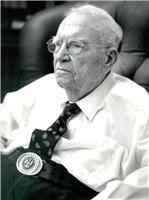In one of the first defamation cases decided by the Supreme Court after New York Times Co. v. Sullivan (1964), the Court concluded in St. Amant v. Thompson, 390 U.S. 727 (1968), that a plaintiff must demonstrate that the defendant actually doubted the truth of a statement in order to prove “reckless disregard.”
Statements made with ‘reckless disregard’ are unprotected by First Amendment
“Reckless disregard” was the standard that the New York Times case had established for public figures who were alleging that statements about them were libelous and were thus unprotected by protections for freedom of speech and press in the First Amendment.
Senate candidate sued for remarks about sheriff’s deputy
Phil A. St. Amant, a candidate for the U.S. Senate, had made a televised speech in which he read excerpts from an affidavit provided by a local union member. The affidavit accused the local’s president of stealing union funds and claimed that Herman A. Thompson, a deputy sheriff, had been complicit in the theft. Thompson sued for libel and prevailed at trial.
After Sullivan was decided, the trial court considered, but dismissed, a motion for a new trial. The intermediate appeals court reversed, finding insufficient evidence of actual malice.
The Louisiana Supreme Court in turn reversed the appeals court, finding that St. Amant had acted “recklessly, though not knowingly” by erroneously believing he was not responsible for accuracy because he was quoting from an affidavit and by failing to verify the information it contained.
Court said ‘reckless disregard’ means person seriously doubted truth, published anyway
Justice Byron R. White wrote the opinion for the majority, reversing the Louisiana Supreme Court.
Acknowledging that formulating an “infallible definition” was difficult, he held that the defendant did not act with “reckless disregard” provided he published a statement in good faith. The standard is not whether a reasonably prudent individual would have published the statement, according to White, and failure to investigate or to consider the source’s reputation for veracity does not in itself establish bad faith. Instead, the defendant must be shown to have actually “entertained serious doubts as to the truth of his publication.”
Justices Hugo L. Black and William O. Douglas concurred, referencing their opinions in Sullivan and Garrison v. Louisiana (1964).
Justice Abe Fortas dissented. Citing Curtis Publishing Co. v. Butts (1967), he contended that St. Amant had a duty to attempt to verify the statement about Thompson, who, although a public official, was not the opposing candidate in the election.
This article was originally published in 2009. Jane E. Kirtley is the Silha Professor of Media Ethics and Law at the Hubbard School of Journalism and Mass Communication, University of Minnesota, where she also directs the Silha Center for the Study of Media Ethics and Law. From 1985-1999, she was the Executive Director of the Reporters Committee for Freedom of the Press. She is the author of the Media Law Handbook published by the U.S. State Department.

